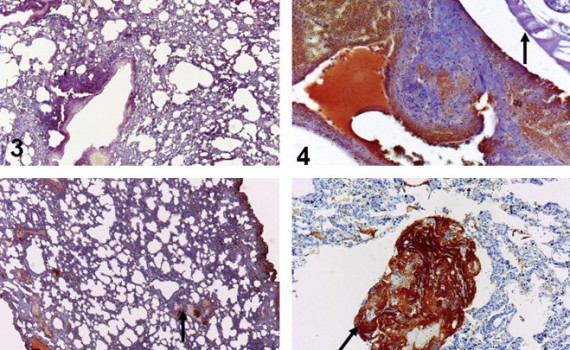
D-dimer deposits in lungs and kidneys suggest its use as a marker in the clinical workup of dogs with heartworm (dirofilaria immitis) disease.
Veterinary Parasitology. Volume 191, Issue 1-2, 16 January 2013, Pages 182-186
Carretón, E., González-Miguel, J., Montoya-Alonso, J.A., Morchón, R., Simón, F., Passeri, B., Cantoni, A.M., Kramer, L.
Abstract
It has been reported that dogs with heartworm disease (Dirofilaria immitis) show increased plasma levels of D-dimer, a fibrin degradation product present in the blood after a blood clot is degraded by fibrinolysis. In the present study the authors show that, in dogs with both experimental and natural infections with D. immitis, D-dimer deposits in lungs and kidneys are associated with pulmonary thromboembolism and microfilariemic status, as well as there was a clear association between increased plasma values of D-dimer and positive staining in immunohistochemistry. Results suggest that the monitoring of D-dimer levels in infected dogs could be useful in evaluating the presence of pulmonary thromboembolism in the lungs and that microfilariae may induce microthrombosis in kidneys, thus contributing to renal pathology.



